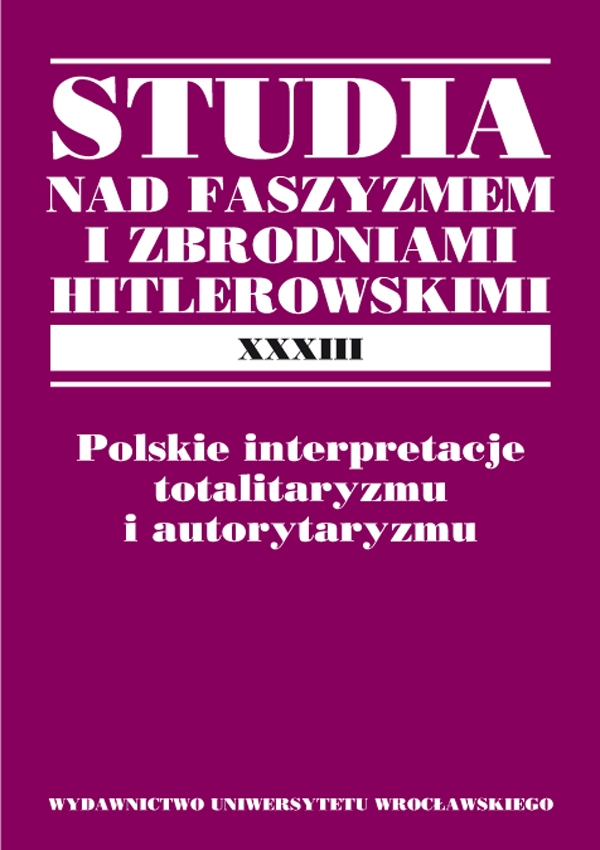

Artykuły

MACIEJ STARZEWSKI’S CONSIDERATIONS ON A TOTAL STATE
The paper presents the analysis of totalism undertaken by Maciej Starzewski, professor of the government law at the Jagiellonian University, during the interwar period 1918–1939. The lawyer defined totalism as a system of wielding power which showed distinct similarities to the model of the absolute state and which constituted a fundamental negation of democracy. Starzewski searched for the origin of this system in the crisis of parliamentarianism which was caused by the lack of appropriate basis for the democratic form of rule. According to Starzewski, every totalism was characterized by three features: the existence of a single party which allegedly constituted a narrow elite of a nation and which existed in order to realize its ideological objectives. He distinguished two types of totalisms: nationalist Fascism and National Socialism and internationalist Bolshevism ones. Starzewski evaluated totalism negatively, regarding democracy as superior proposition. In Starzewski’s opinion, totalism was supposed to lead to artificial societal conflicts, enormous sacrifices suffered in the name of an offi cial ideology’s realization, sharp polarization of society into the ruling privileged elite single party and the ruled masses. Besides, this system was also supposed to be immune to reform and intrinsically connected to a person of a leader; the second factor was supposed to make the system’s implosion after a leader’s demise unavoidable. According to Starzewski, a total system could only function efficiently in a short term and could only be implemented in order to contain some serious danger which threatened the very existence of State and society. When the peril disappears, the return to the democratic model is needed.